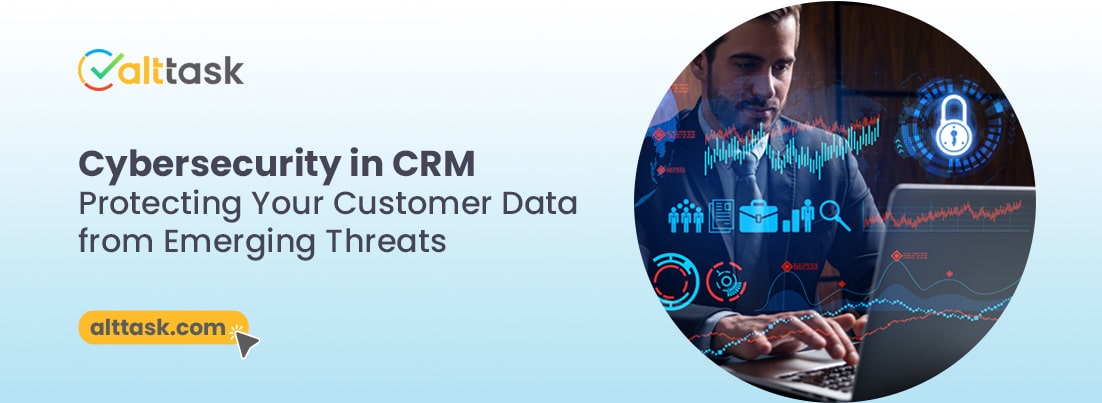Cybersecurity in CRM: Protecting Your Customer Data from Emerging Threats

In an era where digital transformation shapes every aspect of business operations, Customer Relationship Management (CRM) systems have become the backbone of many organizations, offering unparalleled insights into customer behavior, preferences, and history. However, as these systems become more integral to business strategies, they also become prime targets for cyber threats. Cybersecurity in CRM is no longer an optional safeguard but a critical component in protecting your most valuable asset: customer data.
The Growing Threat Landscape
Cyber threats are evolving at an alarming rate, becoming more sophisticated and harder to detect. From ransomware attacks that lock you out of your own data to phishing scams that trick employees into granting access to secure systems, the arsenal used by cybercriminals is vast and varied. These threats pose a significant risk to customer data housed in CRM systems, making it imperative for businesses to adopt robust cybersecurity measures.
Why CRM Systems Are at Risk
CRM systems are treasure troves of personal and sensitive data, making them attractive targets for cybercriminals. Information such as contact details, purchase history, and even personal preferences can be exploited for identity theft, financial fraud, or targeted phishing attacks. Additionally, many organizations opt for cheap CRM solutions to cut costs, which may not always provide the necessary security measures to protect against sophisticated cyber threats. This is particularly relevant for businesses looking for affordable solutions, such as a cheap CRM in Ahmedabad, where the emphasis might often be on cost-saving rather than security.
Key Strategies to Protect Your CRM Data
Regular Software Updates and Patch Management
Ensure your CRM software is always up to date with the latest security patches and updates. These updates often contain fixes for security vulnerabilities that could be exploited by hackers.
Employee Training and Awareness
Human error remains one of the largest security vulnerabilities. Training employees on the importance of cybersecurity, how to recognize phishing attempts, and the proper handling of customer data can significantly reduce the risk of a data breach.
Use Strong Authentication Methods
Implement strong authentication measures, such as two-factor authentication (2FA), to add an extra layer of security. This ensures that even if login credentials are compromised, unauthorized access is still blocked.
Regular Data Backups
Regularly backing up your CRM data ensures that you can restore your system to its last secure state in the event of a cyber attack, minimizing data loss and downtime.
Partner with a Reliable CRM Provider
When searching for a CRM solution, especially when looking for a cheap CRM in Ahmedabad, it's crucial to choose a provider that does not compromise on security features. Look for providers that offer regular updates, data encryption, and robust access controls.
The Future of Cybersecurity in CRM
As technology advances, so too do the capabilities of CRM systems and the cybersecurity measures designed to protect them. Artificial intelligence (AI) and machine learning are being increasingly integrated into cybersecurity strategies, offering proactive threat detection and automated responses to potential breaches.
Moreover, regulatory compliance will continue to shape cybersecurity practices. Laws and regulations governing data protection and privacy are becoming stricter, compelling businesses to adopt comprehensive cybersecurity measures to protect customer data and avoid hefty penalties.
Conclusion
The intersection of cybersecurity and CRM is a critical concern for businesses of all sizes. Protecting customer data from emerging threats requires a multifaceted approach, combining technology, employee training, and strategic partnerships. By prioritizing cybersecurity in CRM, businesses not only safeguard their customer data but also build trust and reputation in an increasingly digital world.



